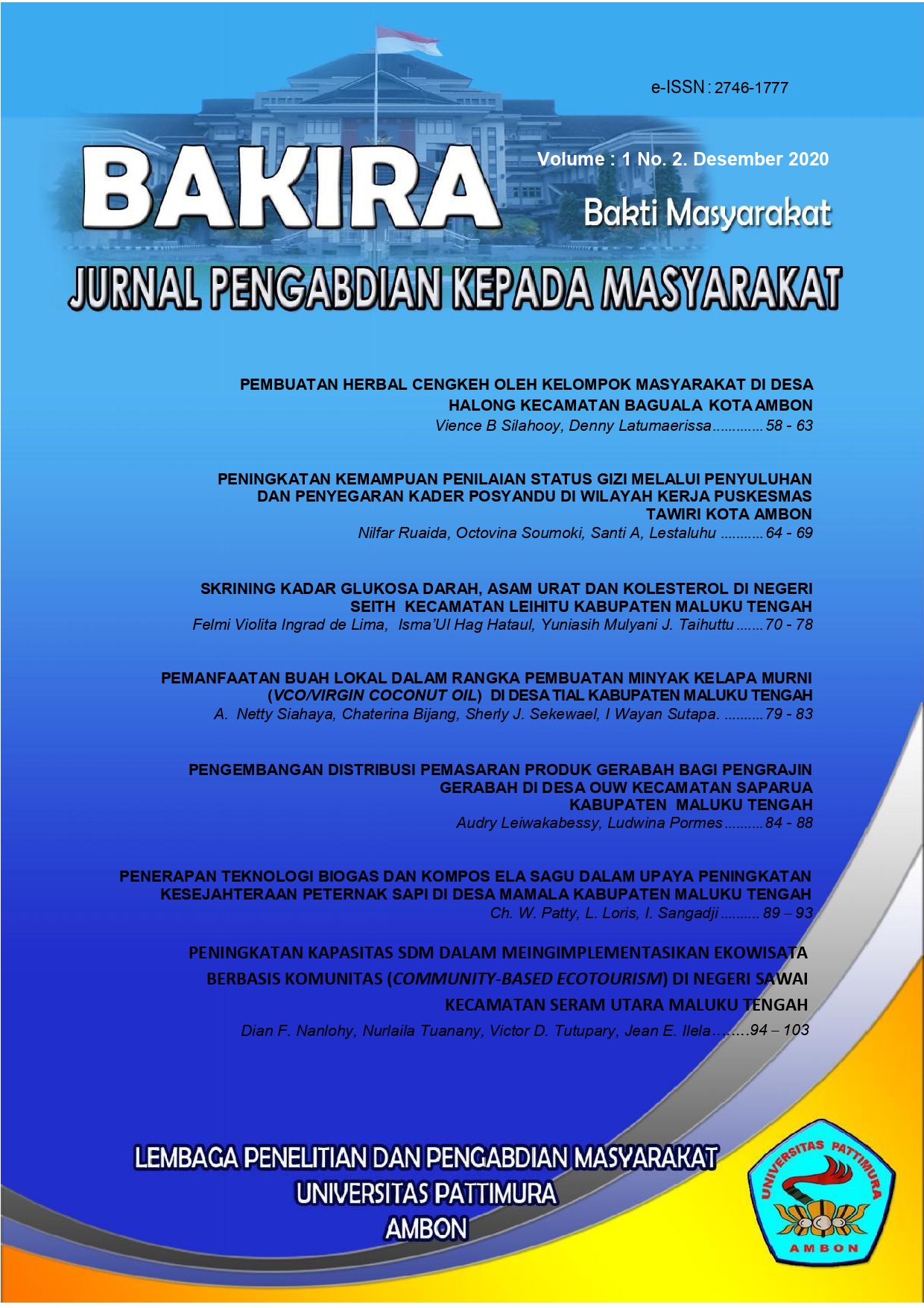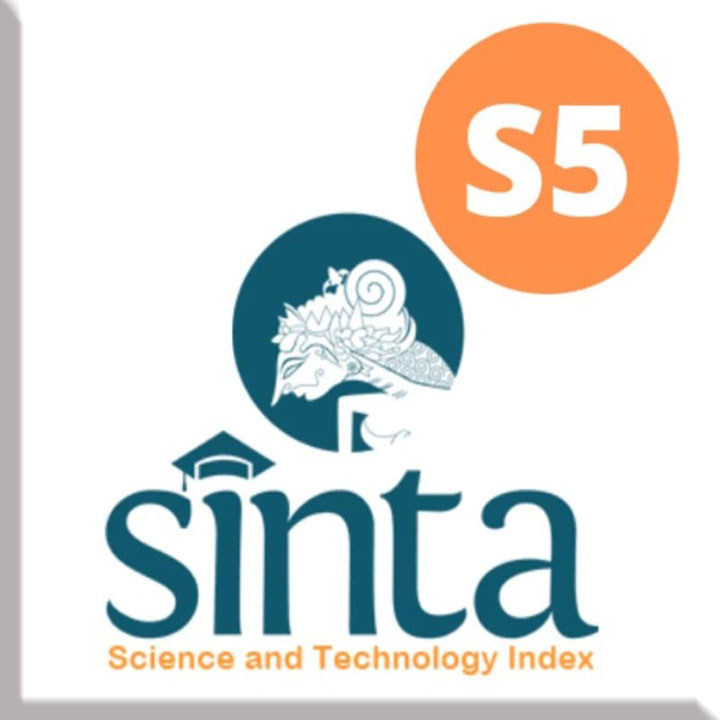PENINGKATAN KEMAMPUAN PENILAIAN STATUS GIZI MELALUI PENYULUHAN DAN PENYEGARAN KADER POSYANDU DI WILAYAH KERJA PUSKESMAS TAWIRI KOTA AMBON
Abstract
The results of the 2015 Health Workforce Development Research (Risbinakes) in the work area of the Tawiri Community Health Center found 239 samples of 76 baduta were stunted (short nutrition) and 44 of them were born to mothers who suffered from chronic energy deficiency during pregnancy. Based on the results of statistical tests, there is a significant relationship between pregnant women who suffer from KEK and their babies that will result in stunting. The role of kader in the implementation of the Posyandu in the working area of the Tawiri Health Center is quite good in attendance, participation and skills. Cadre skills are still lacking, especially in measuring of the length/height of children under five. Besides, during the research, especially in screening for the incidence of stunting, it was seen that the measurement of nutritional status did not meet the anthropometric requirements because the damaged microtoice only used a measuring tape.
This can result in inaccurate measurement results so that the previous stunting data is quite large. The purpose of this Community Service is to improve the ability to assess nutritional status through refreshing kader posyandu in the work area of the Tawiri Community Health Center.
The implementation of the activity consisted of 2 activity stages, namely counselling on monitoring nutritional status to prevent stunting in children using posters and refreshing kader posyandu. This activity is also to reduce errors that arise such as errors in equipment (not yet calibrated), errors in observers (measurement errors, reading, recording). The results of the counselling showed an increase in participant knowledge and an increase in the ability of kader posyandu in measuring, reading, and recording measurement results using anthropometric tools.
Downloads
References
Agustiningrum, T., & Rokhanawati, D. (2016). Hubungan karakteristik ibu dengan kejadian stunting
pada balita usia 24-59 bulan di wilayah kerja Puskesmas Wonosari I (Doctoral dissertation,
Universitas' Aisyiyah Yogyakarta).
Almatsier, S (2009). Prinsip Dasar Ilmu Gizi, Gramedia Pustaka Ilmu, Jakarta
Gibson, 2005. Principles of Nutritional Assesment 2th ed. New York : Oxford University Press
Kementerian Kesehatan RI Badan Penelitian dan Pengembangan Kesehatan, Laporan Hasil Riset
Kesehatan Dasar (Riskesdas) Tahun 2010.
Kementerian Kesehatan RI Badan Penelitian dan Pengembangan Kesehatan, Laporan Hasil Riset
Kesehatan Dasar (RISKESDAS) Tahun 2013.
Kementrian Kesehatan Republik Indonesia (KEMENKES RI). 2018. Cegah Stunting dengan Perbaikan
Pola Makan, Pola Asuh dan Sanitasi. Jakarta. Kementrian Kesehatan Republik Indonesia
(KEMENKESRI).https://sehatnegeriku.kemkes.go.id/baca/rilis-media/20180407/1825480/cegahstunting-
dengan-perbaikan-pola-makan-pola-asuh-dan-sanitasi-2/ Diakses tanggal 25
November 2020
Kusharisupeni (1997) Peran Status Kelahiran terhadap Stunting pada Bayi : Sebuah Studi
Prospektif,Jurnal Kedokteran Trisakti, 23(3): 73–80.
Mantra dkk (2008), Penyuluhan dan Konsultasi Gizi, EGC, Jakarta
Ni’mah, C., & Muniroh, L. (2015). Hubungan tingkat pendidikan, tingkat pengetahuan dan pola asuh ibu
dengan wasting dan stunting pada balita keluarga miskin. Media Gizi Indonesia, 10(1), 84-90..













